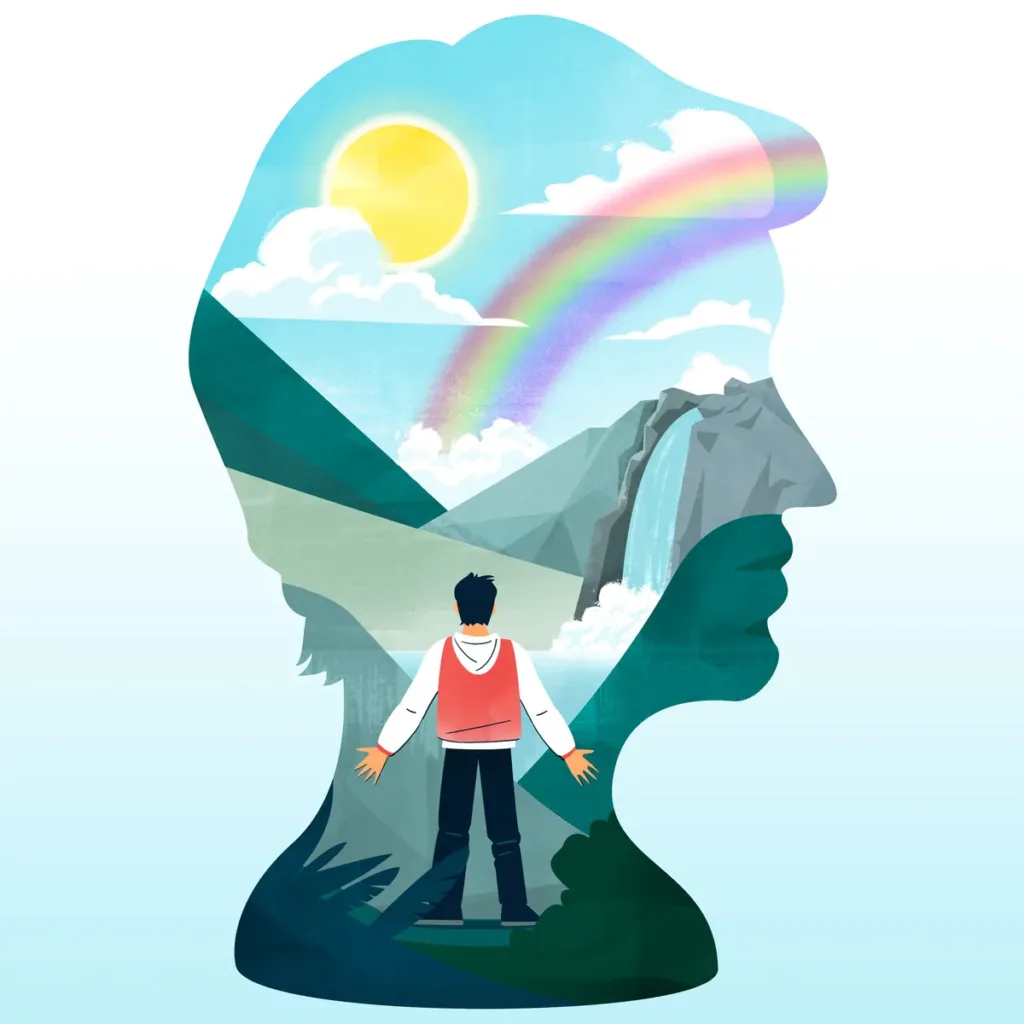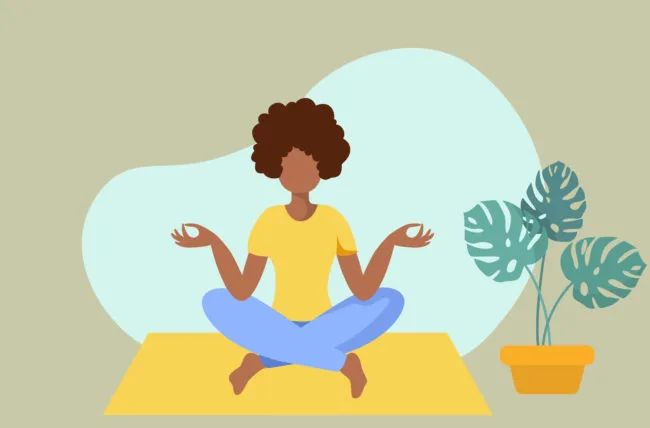So, what does it mean to be healthy?
In this blog post, I wanted to talk about what it means to be healthy, the short answer to which is common sense really – it’s a lot of things, but the long answer is quite in depth, so let’s explore that a bit.
The World Health Organisation (WHO) says that, “Health is a state of complete physical, mental and social well-being and not merely the absence of disease or infirmity”.
‘Good health’ requires a lot of different things to combine, so that your mind, body and spirit work together to bring about the best living conditions for the individual muscles, bones, joints, blood vessels, nerves, various organs and fluids that make up your body.
Traditional Osteopathic philosophy suggests that in order to attain a good level of health ‘the body works as a unit and is greater than the sum of its parts‘. This roughly translates as: everything that you eat, drink, or do and all that is done to you (via trauma or environmental or work stresses) and even what you think and believe in, all come together to make up your allostatic load. The allostatic load is the accumulation of forces that is placed upon you as an individual during your life. The greater the load, the less energy you have left for expressing ‘health’.
So let’s try to break it down a little bit and find out, what does it mean to be healthy?
Mental happiness
I think it’s fair to say that having good mental health, means you feel good about yourself, your place in society and the life that you’re living. You’ll forgive me for not being able to offer much more of an expansion on that, but as I don’t work in the field of mental health, I’m just going to hand it over to the people who do.
According to the WHO, they say that “Mental health is a state of mental well-being that enables people to cope with the stresses of life, realise their abilities, learn well and work well, and contribute to their community.”
They go on to say that “It is an integral component of health and well-being that underpins our individual and collective abilities to make decisions, build relationships and shape the world we live in. Mental health is a basic human right. And it is crucial to personal, community and socio-economic development.”

So that’s what is generally considered a definition of mental happiness, but what about our physical needs to move around?
Physical ability
Physical ability is by definition, the opposite to physical disability. To put it more concisely, the ability to move and coordinate our body in an unhindered manner.
For example, if you’ve neck pain and you’re a painter and decorator, that’s a problem for you isn’t it? You’ll be dreading the time it comes for you to paint a ceiling or door frame. That’s now changed from being just a bit of neck pain. Its now a disability, because you literally can’t look up or turn your head without a lot of pain.
Having a disability doesn’t mean you need a stick or a wheelchair, it means you have (for numerous reasons) become unable to physically complete a task, or number of tasks which require coordinated physical movement and strength.
Vitality – your body’s expression of health
Vitality is the essence within us, the underlying force in each cell that allows it to be healthy. This allows the cell to do all that it should do, without mutating and becoming a danger to us. Cancer can do this for example. If you have poor vitality, you may feel run down or ‘out of sorts’. You may even be in a very poor state indeed with all the above and more.
The National Cancer Institute defines vitality as “A term used to describe a person’s ability to live, grow, and develop. Vitality also refers to having energy and being vigorous and active. Being ill or being treated for a disease, such as cancer, may lessen a person’s vitality.”
Research has shown a correlation between having low vitality and disruption to complex cell mechanisms. These involve ROS (reactive oxygen species) and deoxyribonucleotide (dNTP). It does beg the question why though doesn’t it?
Why do we get disruption to bodily processes? To answer that, we need to talk about how the body self regulates itself – ‘Homeostasis’.
Homeostasis
A definition by the National Cancer Institute, is that homeostasis is “a state of balance among all the body systems needed for the body to survive and function correctly. In homeostasis, body levels of acid, blood pressure, blood sugar, electrolytes, energy, hormones, oxygen, proteins, and temperature are constantly adjusted to respond to changes inside and outside the body, to keep them at a normal level.”

To put it simply, without homeostasis, our body systems would run amok rather than work cohesively to create an environment of optimal vitality.
Vitality is dependant upon optimal homeostasis and homeostasis is dependant upon all of the nutrients which make cells work properly. So how do we improve the pathway of those nutrients to the cells? In short – how can we improve our state of health?
How do you improve your health?
Healthy diet & Exercise
Improving the nutrient intake and the pathway of the nutrients once they’re inside you, so that they can reach our cells and provide optimal function should be the main goal when you’re creating a healthy diet and exercise plan.
How you decide to do that will depend largely upon your own fitness goals. It also depends on whether or not you are trying to lose weight, maintain it or put it on.
The consensus seems to be that a balanced diet, with a moderate amounts of fats, proteins carbohydrates, vitamins and minerals generally does the trick.
Some suggest that when deciding what to eat, maybe consider “eating the rainbow” referring of course to the colours of the different fruits & vegetables out there. On top of that, remember to eat your nuts, seeds and other protein sources of choice to complete the healthy eating part of the plan.
But why ‘healthy’ eating, what about processed & ultra-processed foods, they’re tastier aren’t they? Well, quite simply, processed & ultra-processed foods contain larger amounts of sugar, salt and fats. All of which are associated with obesity.
In case you’re unaware, obesity is associated with higher risks of cardiovascular disease, coronary heart disease, cerebrovascular disease and diabetes, amongst other things.
So, eat healthy – stay healthy. Remember it’s a fact that following a healthy diet and exercise regime are linked to a reduction in stress levels.
Take care of your stress levels
Make sure you take the time to keep on top of your mental health and talk to friends, family or your employer if work stress or other sources of emotional distress are starting to bother you.
If you’re having trouble with managing stress and you don’t feel comfortable talking to people you already know, then consider talking to a mental health professional of your choice, although if you’re stuck for a referral source, we recommend speaking to Marcus or Clairey who are a local team based in Maidstone town centre.

Renowned stem-cell biologist Dr Bruce H Lipton PhD, wrote about how our own belief patterns and subconscious programming affect the chemical make up of our cells in his book ‘The Biology of Belief‘. So yes, that’s right, you literally can ‘worry yourself sick’, which is a worrying thought in itself isn’t it? Conversely and happily though, you can help to make yourself healthy with your thoughts too, so there’s always hope and you should hang on to that thought.
Further Studies
In another study from 2016, ‘Blood sugar level follows perceived time rather than actual time in people with type 2 diabetes Ellen Langer et al.‘, it was found that the influence of suggestion could affect body physiology in a measurable way. Proving that the mind really can be made to influence us at a cellular level.
“The current study investigates whether perceived time has an effect on blood glucose level in people with type 2 diabetes. The hypothesis is that perceived time will have a greater influence over blood glucose level than actual time. Changes in blood glucose levels were measured in 46 participants with diabetes while they completed simple tasks during a 90-min period. Participants’ perception of time was manipulated by having them refer to clocks that were either accurate or altered to run fast or slow. Blood glucose levels changed in accordance with how much time they believed had passed instead of how much time had actually passed. These results are an example of the influence psychological processes can directly exert on the body.”
Stress is something I’ve written about before, so you can read about that here if you haven’t already.
Adequate function of your spine and surrounding tissues
The nerves, blood vessels and surrounding connective tissues are all affected by restrictions in rib and spinal movement. Restrictions to the movement of bony and muscular tissue impedes the flow of nutrients from our blood into the nerves which supply our organs.
Not only that, but the same bony restrictions can limit the drainage of fluids via the lymphatic and venous systems such as the by-products of cellular metabolism, leading to congestion and failure of adequate function in our cells. This has a negative impact on homeostasis and therefore on our vitality.
What areas can you improve yourself?
Diet
Watching what you eat and getting some regular exercise would make a great start to managing your own health.
Check out the NHS recommendations for healthy eating. I would advise you to consider only eat fresh variants of what they suggest. If not, you venture into the realms of processed foods. These aren’t as bad as ultra-processed, but still not great for you.
If you have no idea how best to formulate diet for your own particular circumstances, then maybe contact a dietician? A reputable source for finding a dietician is the Nutritionist Resource website.
Move
On top of that, then why not make time for a 20 minute walk in your lunch break? It’ll help settle you food and get your lymphatic system pumping. The lymphatic system is key to our survival as it’s our protector. This walk will leave you feeling refreshed after lunch, rather than a bit groggy.
If you’re feeling a little more active and like the idea of taking up running, then there’s always the option of downloading the ‘Couch to 5K’ app from either the App Store or Google Play Store? That will definitely get you feeling healthy – eventually, after a lot of hard work….and a lot of sweat.
If you’re really finding it hard to motivate yourself, then maybe consider hiring the services of a personal trainer or joining a yoga class?
Buddha mind
Lastly, the one that most people ignore or put to the back of their mind and label it with ‘I’ll do that one day’ and then never do. Take time to reinforce positive beliefs into your psyche.
Throw away those ideas of ‘I can’t do it’ or ‘I’m not good enough’. Replace them with ‘anything is possible if I try’. Because until you try and try again, and again, then you will never really know.
In fact, failure is a part of our lives isn’t it? So let’s accept the fact that we’re all likely to fail at something, at some point. Then, move on from negative feelings and enjoy our successes in the present moment.
Remember what I said earlier about contacting specific professional help if you need it? It’s better to talk through any problems rather than bottle things up.
How can Osteopathy help you?
Sometimes, eating healthily, maintaining good relationships and mental health, whilst also exercising and stretching, just isn’t enough. You may have some areas of somatic dysfunction in you which are affecting the way you can hold your body. This in turn can affect the way that it functions. Somatic dysfunctions are areas of restriction in your body.
Reducing or removing these somatic dysfunctions results in furthering you on your path to improving your health and well being. This accentuates the benefits you get from all the other changes you’re making in your life to better yourself.
Here at Baks Osteopathy Maidstone, the finding of somatic dysfunctions and reducing/freeing them is our speciality.
You do not need a doctors referral in order to book in and see us. Simply click on the green ‘Book In’ icon below and follow the steps.
We can normally see you within a day or so, except during busy or evening times. Contact us for more information.
Other sources of information
We can recommend looking at the Netflix docuseries entitled “Live to 100: Secrets of the Blue Zones”. This series follows Dan Buettner as he unravels the secrets to healthy living and aging. It’s one thing to live long, but another entirely to live healthy and long. Check the website and take a look at the various healthy eating and lifestyle choices he suggests. Make your own choices to influence your health and well being.
They also have a website which you can access here.

